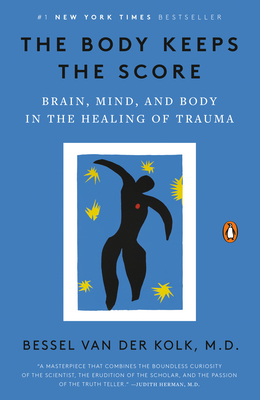
The Mind-Body Guide to the Twelve Steps: Finding Joy, Sensuality, and Pleasure in Recovery--Integrative spiritual and somatic practices for healing from trauma and addiction
Description
A trauma-sensitive companion to the Twelve Steps: body-based exercises for deepening your recovery, expanding your spiritual practice, preventing relapse, and understanding the root of your addiction.
For readers of In the Realm of Hungry Ghosts and Trauma and the 12 Steps
Considering addiction through a trauma-informed lens, The Mind-Body Guide to the Twelve Steps offers an accessible, lyrical, and practical guide to Twelve Step recovery that emphasizes self-compassion, relationship, embodied awareness, and ecological connection.
Whether you're suffering from an active addiction, seeking freedom from self-limiting behaviors, or hoping to establish or grow your spiritual practice, this innovative guide offers a holistic roadmap to navigating the journey of recovery.
Somatic and spiritual counselor, educator, and writer Nina Pick shows how addiction is rooted in survival strategies that protect us from overwhelmingly painful experiences.
Pick draws on attachment theory, polyvagal theory, somatics, mindfulness, trauma therapy, Jewish and integrative spirituality, and her own long-time experience in recovery to expand the Twelve Step practice beyond the conventional cognitive approach into one of “soul recovery”—a profound and sensuously embodied spiritual path.
With reflections and practices designed to complement the literature and tools offered by your specific Twelve Step program, The Mind-Body Guide to the Twelve Steps shows you how to:
- Explore powerlessness and unmanageability
- Integrate dance, vocalization, and other creative arts to enhance your recovery
- Create transformative ritual and ancestral healing practices
- Expand your ideas of Higher Power and prayer
- Forgive yourself and others
- Cultivate daily practices for reflection and meditation
- Understand the intersections of addiction, developmental trauma, and intergenerational trauma
Drawing on plant medicine, mindfulness, poetry, self-directed touch, ritual, and guided imagery, The Mind-Body Guide to the Twelve Steps nurtures a joyful and heart-centered path to recovery and complements the healing work of Peter Levine, Bessel van der Kolk, and Arielle Schwartz.
Praise for The Mind-Body Guide to the Twelve Steps: Finding Joy, Sensuality, and Pleasure in Recovery--Integrative spiritual and somatic practices for healing from trauma and addiction
“Deeply spiritual, highly inclusive, and gorgeously written...a true gift to anyone who struggles with addictive behaviors.... Learning to lovingly attend to the nervous system and find safety and peace in your body will revolutionize your recovery.”
—Jessica Graham, trauma-resolution guide and author of Good Sex
“Compassionate, nuanced, tender, vital, and fierce...a profound contribution toward the sacred work of both individual recovery and ancestral healing.”
—Jo Kent Katz, healer, social justice educator, and creator of Transcending Jewish Trauma
“Let this book be your ally, follow the suggestions that mean the most to you, and you will surely be awakened to your true self.”
—Alan Fogel, PhD, professor emeritus of psychology, Rosen Method bodywork practitioner and senior teacher, and author of Restorative Embodiment and Resilience
“This guide will be equally useful to professionals working at the interface of trauma and addiction and to for those on their own path of recovery.”
—Kathy L. Kain, PhD, coauthor of Nurturing Resilience and The Tao of Trauma
“Both a moving personal journey through recovery and a skillful interweaving of the Twelve Steps with a somatic practice that is deepening, grounding, and enriching.”
—Rabbi Jill Hammer, PhD, author of The Jewish Book of Days
“An important new work that adds a rich voice to the growing canon of literature on how to make the Twelve Steps and addiction healing more trauma informed and culturally responsive....just the right fit for people seeking a more engaged path of recovery and who find that the Twelve Steps alone are insufficient for nourishing the body-mind-soul complex.”
—Jamie Marich, PhD, author of Trauma and the 12 Steps and Dissociation Made Simple
“Drawing from her Jewish faith, Nina Pick expands the fundamentally Christian model into one that includes references to many different belief systems.... Her trauma-informed approach engagingly guides the reader toward the secret garden of somatic and spiritual awakening.”
—Cornelia Elbrecht, AThR, SEP, ANZACATA, IEATA, founder and director of the Institute for Sensorimotor Art Therapy and author of Healing Trauma in Children with Clay Field Therapy
“Nina Pick posits that it is precisely because of the tendency to numb out in addiction that returning to the sensations of the body can be supportive in achieving sobriety....readers who are working the Steps will be well served by the invitation for deepening that Pick offers.”
—Rachel Kann, facilitator, ceremonialist, and poet artist-educator for Ziering Brandeis Collegiate Institute at American Jewish University
“Nina’s book shows us...how we can attentively breathe, slow-dance, and poem our way into an embodied presence at our own pace. Do the exercises in this book. Explore the practices. And if you do, I promise you will not only heal, you will thrive.”
—Albert Flynn DeSilver, author of Writing as a Path to Awakening and Beamish Boy
“Written with empathic understanding of the pitfalls as well as possibilities, this book offers a gentle and effective path to recovery from trauma and addiction.”
—Deirdre Fay, MSW, LICSW, author of Becoming Safely Embodied and Attachment-Based Yoga and Meditation for Trauma














